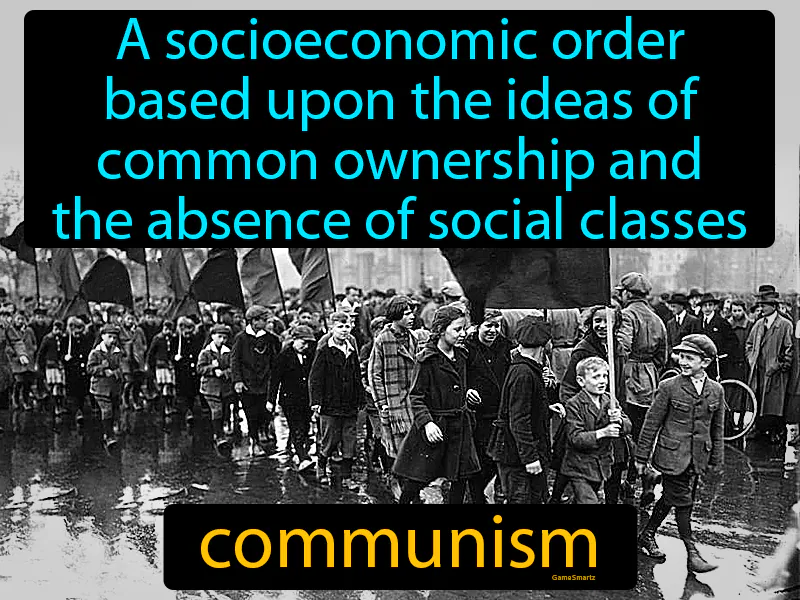Communism
Communism: Easy to understand
In the 1920s, communism was seen as an alternative to capitalism, which was thriving in the U.S. during the "Roaring Twenties." While America enjoyed economic prosperity, communism responded to issues like economic inequality and the exploitation of workers in other parts of the world. The Russian Revolution of 1917 had inspired fear and interest, leading to the "Red Scare" in the U.S., where people worried about communism spreading. Today, communism still matters as it influences countries like China and Cuba, affecting global politics and trade. For example, when buying a product made in China, the country's communist policies can impact its price and availability, showing how economic systems affect our daily lives.

Practice Version

Communism: A socioeconomic order based upon the ideas of common ownership and the absence of social classes. Communism. Communism is a political and economic system where all property is owned collectively, aiming to eliminate social class distinctions, as implemented in the Soviet Union in the 20th century.